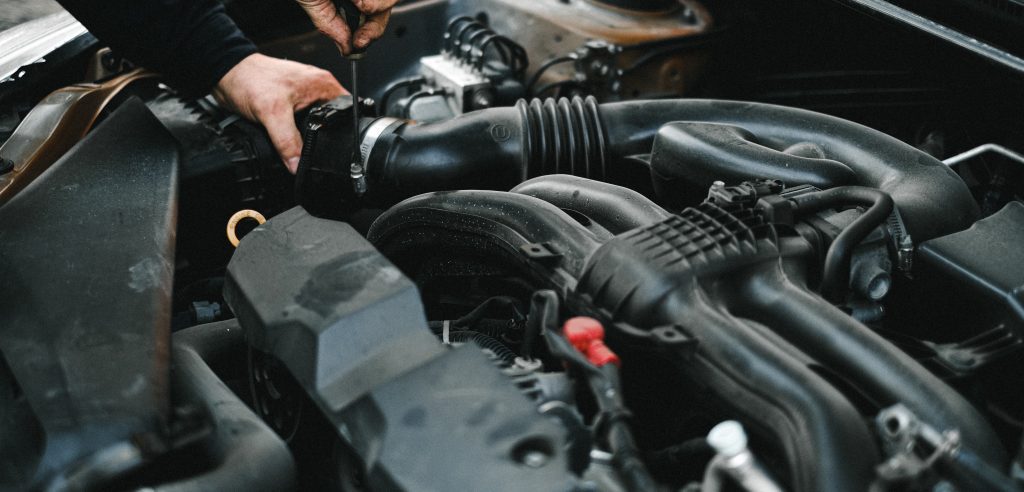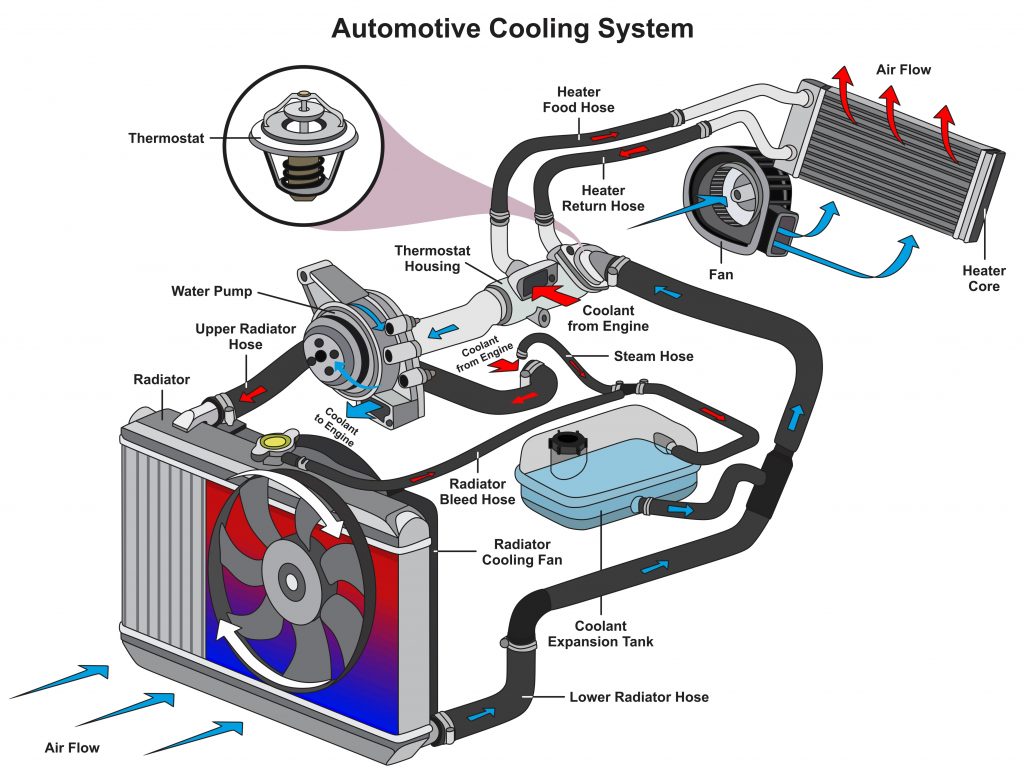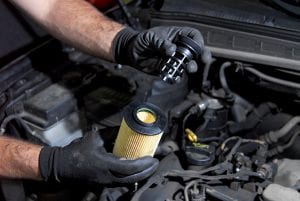Have you ever considered what would happen if your engine cooling system stopped working properly? Overheating can cause cylinder head gaskets to burst and even crack engine blocks if the problem persists.
The engine in your car works best at a high temperature, so when the engine is cold, components wear out easily. This can then result in more pollutants being released, and the engine becomes less efficient. Although engines can be replaced, it’s best to know how they work so you can reduce any damage or potential hazards.
What does an engine cooling system do?
An engine cooling system is a crucial component in vehicles and machinery with internal combustion engines, such as cars, trucks, motorcycles, and industrial equipment. Its primary purpose is to regulate the temperature of the engine and prevent it from overheating. To put it simply, the car’s cooling system cools the engine. But cooling this engine is actually a huge task, especially when you consider how much heat a car engine can generate. For example, if a small car is travelling at 50mph, this will generate approximately 4,000 explosions per minute.

Components of a cooling system
Heat Generation: Internal combustion engines generate a considerable amount of heat during operation due to the combustion of fuel in the cylinders. This heat needs to be controlled to evade damaging the engine parts.
Coolant: The cooling system uses a fluid called coolant that circulates through the engine and radiator and absorbs the excess heat.
Circulation: The coolant circulates through the engine, absorbing heat from the engine block, cylinder, and other components. As it absorbs heat, the coolant temperature increases.
Radiator: The hot coolant then rushes into the radiator, a heat exchanger found at the front of the vehicle. The radiator has a large exterior and is equipped with fins to maximise heat dissipation.
Heat Dissipation: As the hot coolant flows through the radiator, air passes through the fins and causes the coolant to release heat and lower its temperature.
Thermostat: The cooling system often includes a thermostat which is a valve that regulates the flow of coolant between the engine and the radiator. The thermostat remains shut when the engine is cold, allowing it to warm up quickly. As the engine reaches its optimal temperature, the thermostat opens for coolant to flow through.
Pressure Cap: The cooling system is pressurised to raise the boiling point of the coolant. A pressure cap on the radiator maintains this pressure.
Cooling Fans: Cooling fans help maintain the desired temperature even in conditions where natural airflow might be insufficient.
Water Pump: A water pump is responsible for circulating the coolant through the engine and radiator, allowing for a continuous flow of coolant.

How to maintain a cool system
Maintaining the cooling system of your vehicle is essential to prevent overheating and ensure the longevity of your engine. To keep your engine running as it should, follow these essential maintenance tips!
- Get regular inspections which cover features such as the cooling system components, hoses, belts, radiator, water pump, thermostat, and radiator cap.
- Check the coolant level regularly, especially before long trips.
- Ensure the coolant mixture is at the correct ratio of water to antifreeze. This prevents freezing in cold temperatures and boiling in hot conditions.
- Flush and replace your coolant.
- Make sure the radiator cap is in good condition and replace it if it’s damaged or not sealed properly.
- Keep the radiator clean by removing debris like leaves, dirt, and bugs from the fins.
- Check for leaks around the water pump.
- Don’t overload or overwork your vehicle.
- Follow a maintenance schedule and invest in preventive maintenance
Coolant Filters by Filer Services
Coolant filtration has been proven to reduce wear and help to maintain your coolant system. A well-maintained coolant system will mean that you’re able to more effectively transfer heat from your engine. Choose from some of the biggest brands like Fleetguard, Donaldson and more, used for a number of different vehicle types and industries including construction, car filters, lorries, agriculture, tractors, energy, mining and more.
Explore our range or get in touch with a member of our team on 01246 802 822 for some expert advice!
